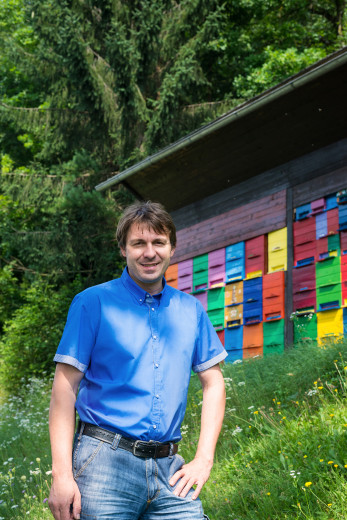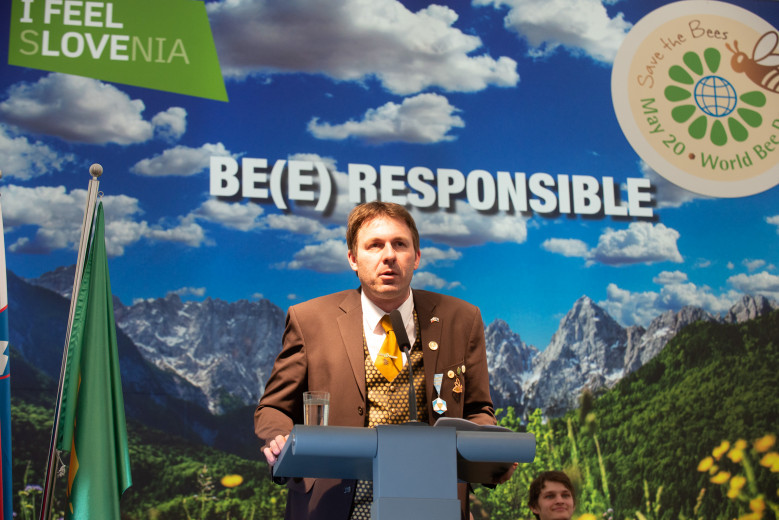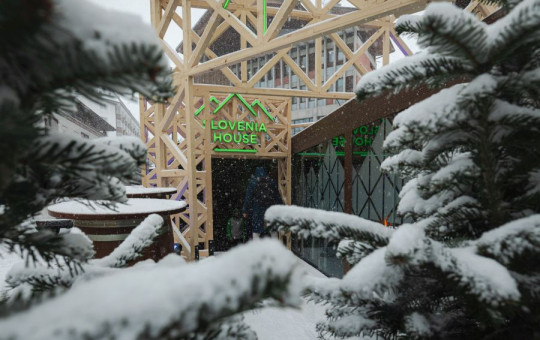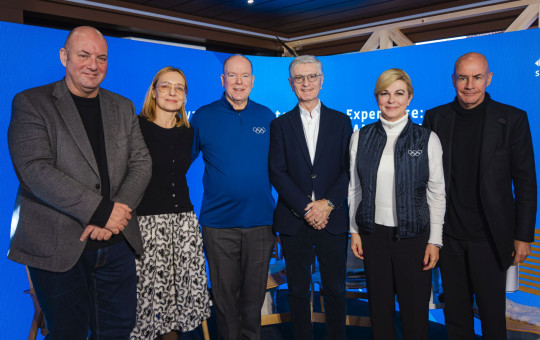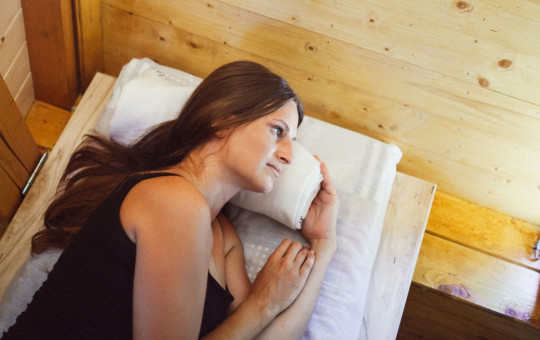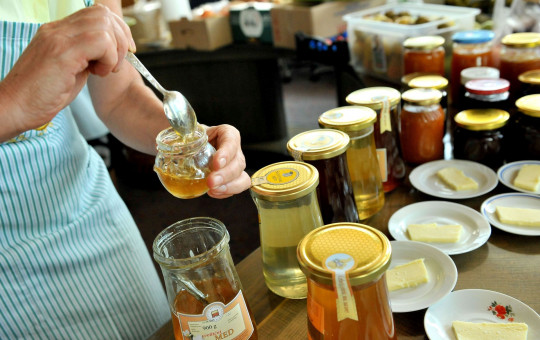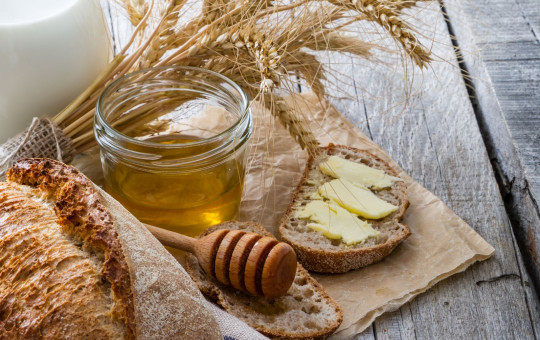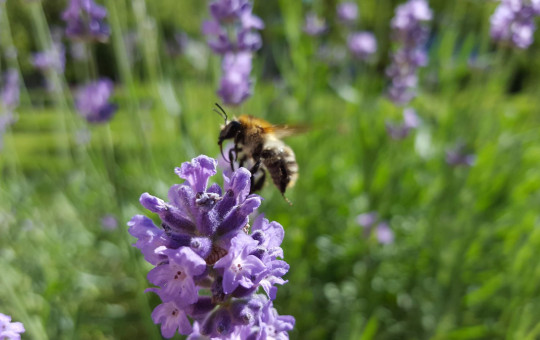Date: 29. April 2020
Time to read: 3 min
INTERVIEW
Boštjan Noč, President of the Slovenian Beekeepers’ Association
The third celebration of World Bee Day
It has been two years since the UN General Assembly proclaimed 20 May as World Bee Day on the initiative brought forward by Slovenia. How would you summarise this two-year period in regards to innovations and achievements?
The most important thing is that the world became aware of the great importance of bees and started to respect beekeepers’ work.
In the last two years, people’s awareness of the importance of bees has increased, which is very important since agriculture now uses less chemical fertilisers, which reduces mass bee deaths.
Furthermore, significantly more honey plants are being planted. Slovenian and foreign politicians are becoming more and more aware of the significance of bees, as evidenced by the adoption of important international documents to protect bees and pollinators. We are moving in the right direction, but still too slowly.
-
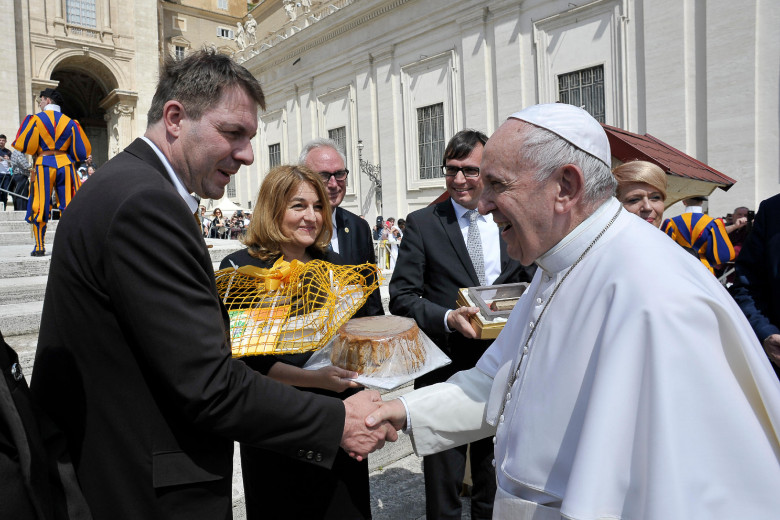 For last year’s World Bee Day, Slovenia gifted a beehive to the Pope. Photo: Personal archives
For last year’s World Bee Day, Slovenia gifted a beehive to the Pope. Photo: Personal archives
-
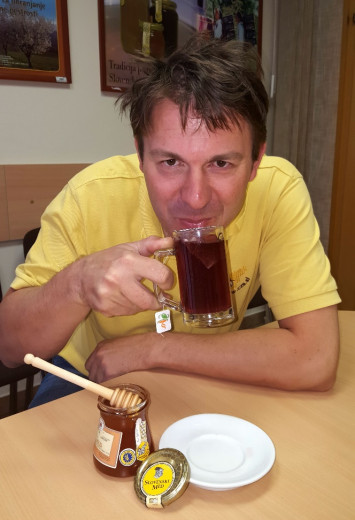 Boštjan Noč has been in charge of the Slovenian Beekeepers’ Association for fourteen years. Photo: Personal archives
Boštjan Noč has been in charge of the Slovenian Beekeepers’ Association for fourteen years. Photo: Personal archives
-
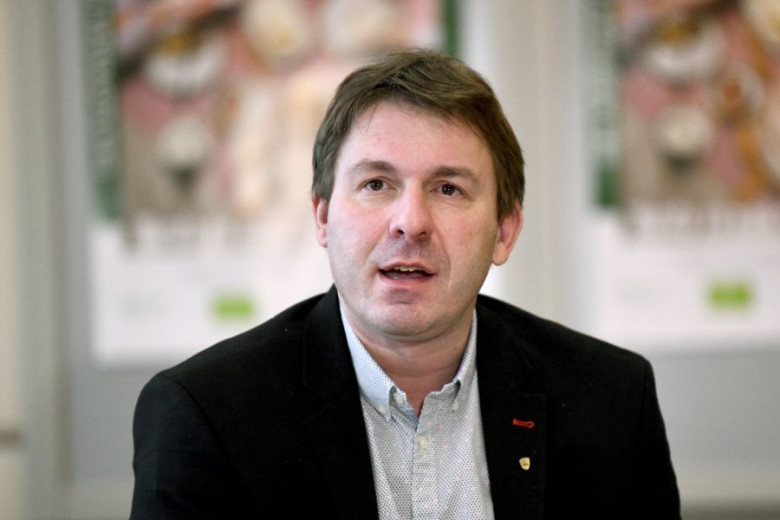 Noč: "The most important thing is that the world became aware of the great importance of bees and started to respect beekeepers' work." Photo: Tamino Petelinšek/STA
Noč: "The most important thing is that the world became aware of the great importance of bees and started to respect beekeepers' work." Photo: Tamino Petelinšek/STA
You will be president of the Slovenian Beekeepers’ Association for the next mandate of 2020–2024. You have an ambitious plan. What kind of tasks and objectives have you set for yourself?
I have been in charge of the association for fourteen years and I appreciate the support of almost all the voters.
The main task and goal is that all the honey products on the EU market would bear a country of origin label, and that honey mixtures would be labelled with the exact share of the individual country of origin.
Further tasks include declaring bees as an endangered species, achieving improvements in the field of beekeeper training, a VAT reduction for bee medications, the promotion of honeybee products and more. We are definitely not running out of ideas. Of course, we want to continue as the leading beekeepers' association in the world.
Slovenian beekeeping is certainly a global particularity; it is what we are known for in the world. Is it right to assume that, together, we are writing a fairy tale about honey that Slovenia deserves?
The organisation of beekeeping in Slovenia is second to none. Unfortunately, natural conditions have not always worked in our favour in the last few years and our fairy tale of honey has been quite bitter.
-
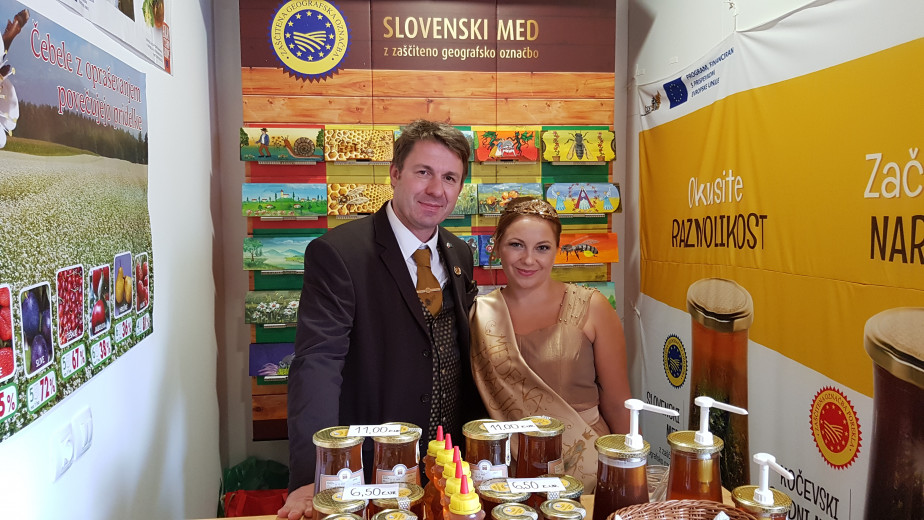 Noč: "I was one of the first to say out loud: let's eat Slovenian food, let's eat Slovenian honey. Photo: Personal archives
Noč: "I was one of the first to say out loud: let's eat Slovenian food, let's eat Slovenian honey. Photo: Personal archives
-
 The Museum of Apiculture in Radovljica is the only specialised authorised national museum in Slovenia. A visit to the museum is a great opportunity to become fully acquainted with the rich history of beekeeping in Slovenia. Photo: Personal archives
The Museum of Apiculture in Radovljica is the only specialised authorised national museum in Slovenia. A visit to the museum is a great opportunity to become fully acquainted with the rich history of beekeeping in Slovenia. Photo: Personal archives
Nevertheless, beekeepers have been writing a new chapter in the culinary field – first with the honey breakfast which has grown to become a traditional Slovenian breakfast and, later, with the Slovenian Food Day taking place each third Friday in November.
The Slovenian Beekeepers’ Association and I, personally, was one of the first to say out loud: let's eat Slovenian food, let's eat Slovenian honey. I think it is time that we serve foreign delegations in Slovenia food solely of Slovenian origin. This way, we can showcase our excellent food to the world, which will be the best promotion for us, our food, our agriculture and our beekeeping. I really hope that only Slovenian food will be served during our Presidency.
Previously, the store shelves of big shopping centres in Slovenia were filled with honey of foreign origin (around 80%), and only about a fifth of Slovenian origin. Today, it is the opposite, in spite of the fact that Slovenian honey, owing to its quality
The Slovenian Beekeepers' Association has been trying to raise awareness for years that locally produced honey is the best for the consumer.
Around 70% of the honey on the world market is adulterated, therefore, the best guarantee for the consumer is to purchase home from their local beekeeper.
Luckily, Slovenians are mostly aware of that and buy excellent Slovenian bee products directly from local beekeepers. They are a bit more expensive, but they are genuine natural products as made by our bees.
There are 9800 beekeepers registered in the Slovenian Beekeepers’ Association forming 210 associations and producing around 2000 tonnes of honey. You must be happy with these numbers?
There are more than 10,000 beekeepers in Slovenia, and about 8000 in the Slovenian Beekeepers' Association. Sadly, we produce less honey each year, although the number of beekeepers is growing. Two thousand tonnes per year is, unfortunately, not enough. Our goal is to produce more as the Slovenian consumer deserves Slovenian honey. At 2000 tonnes, that is about the half of the quantity needed.
What about this winter's loss of bees? How are the bees doing in Slovenia in general and during this epidemic? What is the latest information from the field?
This year, the survival rates have been very good, but sadly the recent frost promises another below average yield.
Do you think that Slovenians are sufficiently aware of the importance of bees?
I am happy to say that Slovenians respect bees and our beekeeping in general.
Beekeepers are respected members of the society, and we, as beekeepers, are proud to perform this noble and valuable activity. Slovenians are passionate beekeepers; we really are the land of beekeepers.
Bees have always accompanied us through the years. We are the homeland of the Carniolan honeybee, we have our own unique apiary, unique beehive panels, our "AŽ" hive, honey bread biscuits and honey bread hearts, Dražgoški kruhek – hand-crafted and decorated honey biscuits, apitourism. You cannot find these features anywhere else in the world. Slovenians live with and for the bees.
Slovenian proverb: When with worry I'm beset, and sadness amasses, the bees they comfort me, the worry I forget and the sadness passes.

